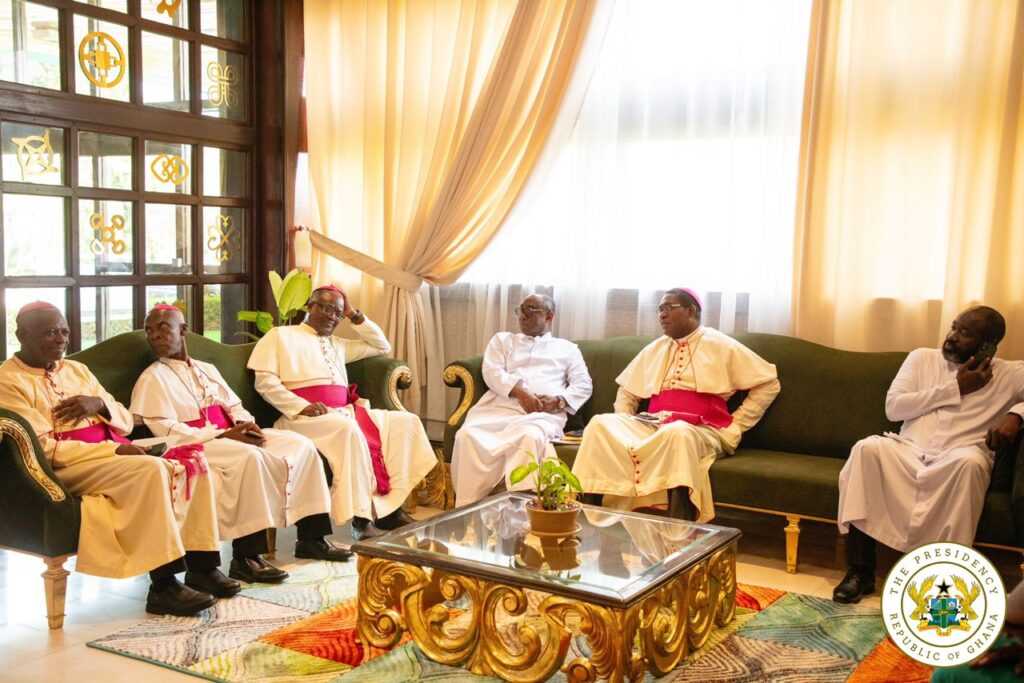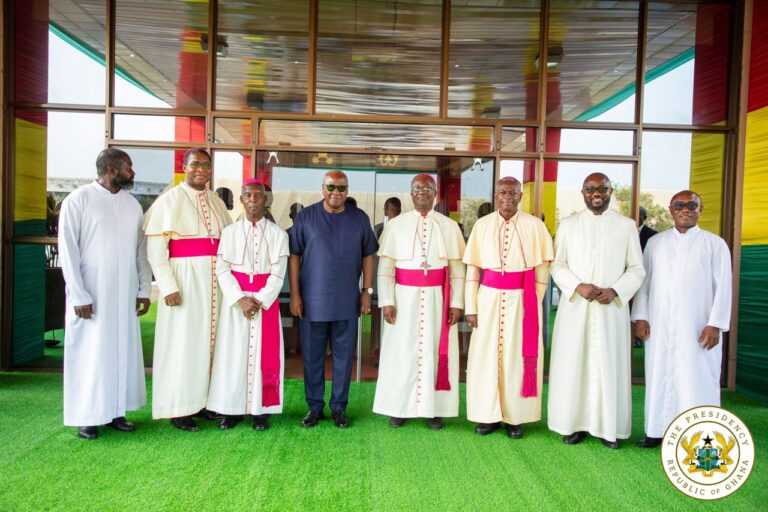President John Dramani Mahama has expressed a preference for advancing family values through education rather than relying on legislative measures.
During a meeting with the Catholic Bishops Conference, Mahama highlighted his commitment to fostering dialogue and moral education as a means of preserving Ghana’s cultural values. He proposed that a curriculum emphasizing family values for the younger generation would be more effective in upholding traditional norms than a legislative approach, such as the controversial LGBTQ+ bill.

Mahama further argued that the anti-LGBTQ+ bill, officially known as the “Promotion of Proper Human Sexual Rights and Ghanaian Family Values Bill,” would gain broader legitimacy if it were a government-backed initiative. He remarked, “For the bill to have broader legitimacy and a higher chance of success, it should ideally come with government backing.” However, he clarified that legislation might not be a top priority for his administration.
Shifting the Focus from Legislation to Education
Mahama noted, “We won’t need a bill to enforce our family values. More important than the Family Values Bill is agreeing on a curriculum that instills these values in our children as they grow.” This stance reflects a departure from the hardline position adopted by some members of his National Democratic Congress (NDC) party, who have pushed for the swift enactment of the bill in its current form.
The Controversial LGBTQ+ Bill
The bill aims to criminalize LGBTQ+ activities and advocacy in Ghana. Proponents argue it aligns with the country’s cultural and religious values, while critics contend it infringes on fundamental human rights.
In 2024, the Nana Addo-led administration failed to sign the bill into law despite its passage in Parliament, a decision that Mahama and the NDC criticized heavily during their campaign. They labeled this as hesitation on the part of the then-President and made it a central issue in their electoral strategy.
Political Implications
Mahama’s stance signals a more progressive and internationally aligned approach, potentially alienating some conservative groups but appealing to those who advocate for human rights and inclusivity. By prioritizing education and dialogue over punitive measures, his administration aims to address societal concerns while safeguarding human rights.
This measured approach may redefine the debate surrounding LGBTQ+ issues in Ghana and its intersection with cultural preservation, politics, and international engagement.





